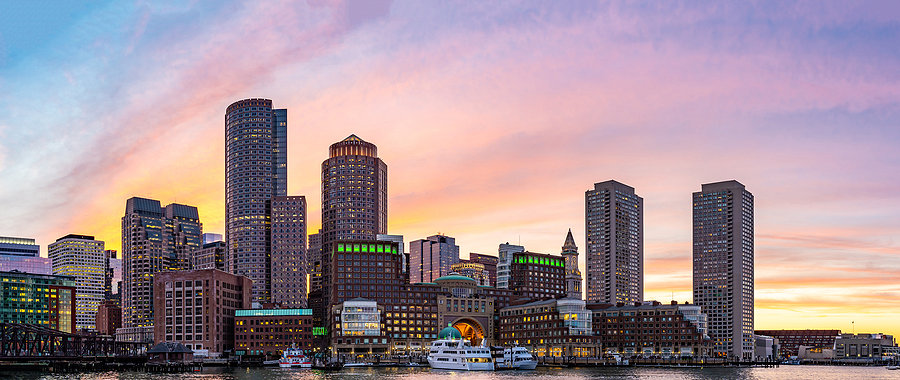
In June, MassBio released its State of Possible 2025 report, a five-year strategic plan for Massachusetts and MassBio to ensure the life sciences cluster’s long-term success. To learn more about how this report will serve as a roadmap for the next five years and beyond, we sat down with MassBio’s new Board Chair, and CEO & President of Unum Therapeutics, Chuck Wilson.
MassBio’s State of Possible 2025 Report identified four key opportunities for the Massachusetts life sciences industry to achieve balanced growth in the coming years. Which opportunity (or two) do you believe you can make the greatest impact on during your time as chair?
We must focus on the opportunities that will best support our sustainability. To get there our efforts should be concentrated on the growth of commercialization and manufacturing of therapies here in Massachusetts, and the expansion of the cluster beyond Cambridge/Boston. Our strength in R&D has cultivated an ecosystem of innovation that is the envy of the world and led to improved outcomes for patients. Similarly, the life sciences industry is highly concentrated in Kendall Square. In both cases, without growth it’s hard to envision a truly sustainable ecosystem.
In the past, Massachusetts leadership in new drug development has not translated at scale to commercial operations as small and emerging companies often did not bring products to market themselves. That dynamic is changing, but intentional steps must be taken to get companies to invest their commercial operations in our state. What’s farther along is biomanufacturing. Massachusetts is already home to multiple manufacturing facilities and has received significant investment in new and expanded facilities. As curative and next-generation therapies come down the pipeline, creating new opportunities for biomanufacturing, Massachusetts’ cohort of innovators and availability of specialized talent are ripe to position the state’s manufacturing as an area of strength. Additionally, as our 2025 Report lays out, growing existing and establishing new “mini-clusters” across the state will allow our industry to thrive. It’s time we transform the dynamic of our industry, so innovation isn’t solely centered within a few square miles, but instead exists in even the smallest communities.
What are the biggest challenges facing the life sciences industry right now?
Right now, our industry’s growth is being crippled by our aging transportation and housing infrastructure and our limited ability to recruit and retain top talent, especially from diverse backgrounds. Traffic may not be bad right now because of the pandemic, but hoping it stays this way is not a long-term solution. It is very difficult for people to leverage our robust network of resources when they cannot access the Cambridge/Boston core on our decaying roads and public transportation or afford to live near it. However, the shift to remote work in response to the pandemic provides an opportunity to rethink how we can address our infrastructure challenges, and part of that may be changing the way we work. If we don’t fix things now, we are going to be worse off once normality is restored, and that applies to our talent pipeline as well.
Society is commanding we take action in response to the recent protests and decades of systemic racism that has plagued our country – it is time we hold ourselves accountable. Our industry is not as diverse as it could be and that is a disservice to the patients we serve. Boston and Cambridge are an academic mecca of many people who come here for education, training, and experience, but we need to retain that talent to stay, work, and live here. We also need to significantly broaden the industry’s talent pipeline outside of the usual places so we can identify more diverse talent and get them to Massachusetts. We are the world-renowned leaders in the life sciences, and we need the best talent and the greatest minds from across the globe to live, work, and innovate here in Massachusetts. The onus is on us to harness the opportunities before us that will bolster our cluster’s leadership. This journey will begin with a focus on our workforce and our infrastructure
Looking ahead, what will be your biggest priorities as Chair to help ensure Massachusetts remains the best place in the world for the life sciences?
While addressing systematic racism will remain a focal point while I’m Chair of the MassBio Board, we must also navigate the new realities brought on by COVID-19. This pandemic is fundamentally changing the way we work, while also shining a light on the brilliance of the life sciences industry. Our industry’s response has been incredible, but we need to harness the lessons learned from this pandemic as we drive forward. What will the next disruption be? Are we taking the appropriate steps to identify and address it? That resiliency to combat the world’s greatest disruptions will be the key to sustaining our leadership as the best place in the world for the life sciences.
As we move forward, we must broaden our credibility as the best place in the world for the life sciences. A place beyond just R&D where all pieces of industry exist and reach across the state – not just in Kendall Square and Boston. Currently, Massachusetts is highly focused on academic innovation and venture-backed development of therapies and products, and while that has led us to greatness it will not sustain our legacy. Expanding our manufacturing of therapeutics is a critical component to our success. I also hope to work with MassBio’s extensive membership to improve people’s daily lives so they aren’t stuck in traffic every day or delayed by public transportation failures. We’re looking ahead to support the next decade of biotech innovation, one with significant opportunities for Massachusetts to sustain its foothold as the world-renowned leader in the life sciences and healthcare innovation. Together, we will make sure Massachusetts remains the best place in the world for the life sciences and talent, and I look forward to help lead this charge.
To read the full State of Possible 2025 report, visit: https://www.massbio.org/2025-report/.
About Chuck Wilson

Chuck Wilson is President and Chief Executive Officer of Unum Therapeutics, a company developing a novel cellular immunotherapy platform for the treatment of cancer.
Immediately prior to starting Unum, Chuck served as Vice President, Global Head of Strategic Alliances for the Novartis Institutes for BioMedical Research (NIBR), the research and early development division of Novartis. In this role he was responsible for leading partnering efforts across all disease areas up through clinical proof-of-concept. His efforts included academic and biotech collaborations, equity investing in early stage companies, in- licensing of compounds, and spin-out of assets/technologies to start ups.
Prior to joining Novartis, Chuck co-founded Archemix, a Cambridge, MA biotech company focused on the development of aptamers as therapeutics. At Archemix, Chuck served as Chief Technology Officer, responsible for both developing the company’s technology platform and managing its drug discovery efforts. As part of the senior management team, Chuck helped the company raise over $100 million in equity financing and grow to approximately 100 employees, advancing multiple programs into clinical development.
Before moving into industry, Chuck was a professor in the Markey Center for the Molecular Biology of RNA at the University of California, Santa Cruz. There he determined the first x-ray crystal structures of RNA aptamers bound to their targets and developed such molecules as tools for regulating gene expression. Trained in structural biology and molecular biology, Chuck received his PhD with David Agard (UCSF, HHMI) and did his postdoctoral training with Nobelist Jack Szostak (Havard University / Massachusetts General Hospital).